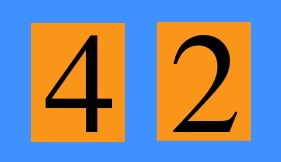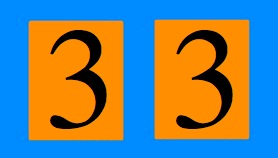Or search by topic
Number and algebra
Geometry and measure
Probability and statistics
Working mathematically
Advanced mathematics
For younger learners
Half Time



- Problem
- Getting Started
- Student Solutions
- Teachers' Resources
Half Time

When Spain played Belgium in the preliminary round of the men's hockey competition in the 2008 Olympics, the final score was 4 - 2.

What could the half time score have been?
Can you find all the possible half time scores?
How will you make sure you don't miss any out?
In the final of the men's hockey in the 2000 Olympics, the Netherlands played Korea. The final score was a draw: it was 3 - 3 and they had to take penalties.

Can you find all the possible half time scores for this match?
Why do this problem?
This challenge invites pupils to develop a systematic way of working and offers the opportunity for discussion in pairs, small groups and the whole class. For some learners, having a 'real' context might provide motivation to solve the problem.
Possible approach
Of course, you may wish to introduce this problem in the context of the scores of a local event, rather than the Olympics. This may help many pupils engage in the solving of the problem.
Key questions
Possible extension
You could ask "If there are $24$ possible different half time scores, what could the final score have been?".
Possible support
Some pupils may prefer to start with games where there are fewer goals, for example, 0 - 1, 1 - 0, 1 - 1 etc so that there are fewer possible half time scores.
You may also like
Triangle Animals
How many different ways can you find to join three equilateral triangles together? Can you convince us that you have found them all?
Triple Cubes
This challenge involves eight three-cube models made from interlocking cubes. Investigate different ways of putting the models together then compare your constructions.
The Add and Take-away Path
Two children made up a game as they walked along the garden paths. Can you find out their scores? Can you find some paths of your own?

